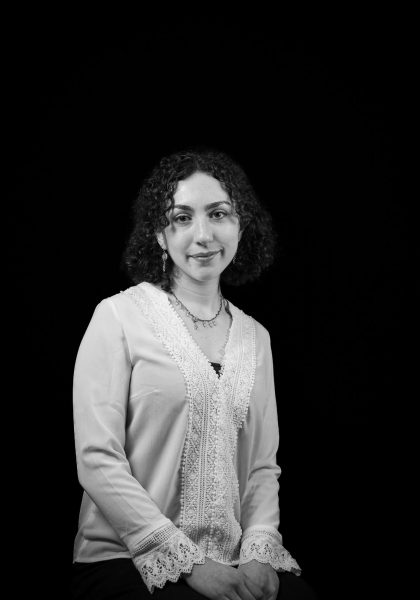One busy Sunday at Trader Joe’s, my usual love for customer service was slowly diminishing and small talk lacked its typically lively luster.
Disengaged from conversations and attempting to reel my drifting thoughts back to the present moment, my smile rusted as the lines kept moving.
However, energy radiated from the next customers at my register. The father had a long beard, the mother a wig and the children wore a mix of kippahs and long skirts. I grew up reformed Jewish and recognized immediately that they were Orthodox.
From the moment I scanned their chili lime chips, our conversation bubbled as if we were old friends.
We interrupted each other in the same loving way my Jewish family does and the mother voraciously asked details about my life in Vermont.
We started in English and ended in Hebrew. She put her number in my phone, and I didn’t think twice.
“If you’re ever in Montreal and need a place to stay, please text me,” she said.
For just a few minutes, our storylines intertwined, connected by a shared culture and trust in the good of the other person.
I shared this story with friends and family.
It was endearing to some, creepy to others and invoked laughter from all.
A Jewish friend of mine expressed no wariness about the situation, saying I should definitely take the woman up on the offer. Non-Jewish friends felt the story was innocent but foreign.
My mom is known for encounters like these, making friends everywhere she goes.
When I told her the story, she asked for the woman’s name, repeating it with warm recognition and a slight chuckle. A stranger, yet someone she knew.
During my first year of college, I took Intro to Sociology with KC Williams, assistant dean for equity, belonging, and student engagement. I felt a calling to reach out to her with this story despite not having spoken since taking the class two years ago.
Williams’s father was an Army officer, meaning that she lived on Army bases growing up. The structure of the Army bases fostered a community of trust—a collection of neighbors who were always looking out for each other.
“I’ve got to be able to trust the people in my neighborhood and on my base in the same ways that I would want them to trust me,” Williams said.
No one was a stranger. In a way, I feel the same way about the Jewish community.
Identifying other Jews exists as a sixth sense. I see a shared montage of Shabbat dinners, b’nai mitzvot and discussions where everyone is talking over each other yet fully listening. This comfort is familial and joyous, just like Purim or Hanukkah.
Williams feels this in others who grew up within the military system.
“I feel like I see it. I could recognize it in somebody,” Williams said.
There’s that sixth sense, the knowledge of similarities and experiences mirrored and shared.
Aside from my Jewish upbringing, my community was truly my clan of neighborhood kids. I yearned every afternoon to meet up with the group again, entering an intricate world of make-believe.
I’ve had a nagging feeling that I’ll never find my community, never find something like the neighborhood kids again.
That’s completely false.
I find community every time I open my heart to the possibility of connection and of conversation, both with people close to me and with strangers.
Despite the dullness I felt that Sunday, something in me must have been accepting and curious enough in that family to foster a mutual sense of belonging, if only just for a moment.
I’ve been increasingly inspired by an Eastern Asian proverb called “The Red Thread of Fate.” It suggests that two people are tied together by a red string on their pinky fingers. These two people are destined to meet each other—soulmates, if you will.
Within the web that connects human beings, sometimes a string gets pulled and brings two people closer together for a moment in time.
My intention with this recurring column is to elaborate on the nature of my human experience and place it into the tangle of strings that make up the greater human experience.
Full transparency: this will be an experiment and a journey. I’m just a college student who does a lot of talking and a lot of thinking.
Moving forward, I promise I’ll lay off the analogies about strings.
Always, Olivia.















